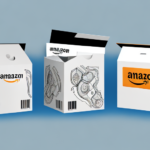Comparing FBA vs FBM: Which Is the Better Option for Your Business?
If you're an ecommerce business owner, one of the most critical decisions you'll make is choosing the right fulfillment method. Fulfillment by Amazon (FBA) and Fulfillment by Merchant (FBM) are two popular options. This article provides an in-depth comparison of FBA vs FBM to help you determine which option aligns best with your business needs.
Understanding FBA: Fulfillment by Amazon
Fulfillment by Amazon (FBA) is a service provided by Amazon that allows businesses to store their inventory in Amazon's vast network of warehouses. When a customer places an order, Amazon handles the picking, packing, shipping, and even customer service and returns on your behalf.
How FBA Works
- Inventory Storage: Send your products to Amazon's fulfillment centers.
- Order Processing: When an order is placed, Amazon picks, packs, and ships the product.
- Customer Service: Amazon manages customer inquiries, returns, and refunds.
Benefits of Using FBA
- Prime Eligibility: Products fulfilled by FBA are eligible for Amazon Prime shipping, potentially increasing sales.
- Scalability: Easily scale your operations without the need to manage your own warehousing and logistics.
- Global Reach: Expand your business internationally with Amazon's global fulfillment network.
- Customer Service: Save time and resources as Amazon handles customer service and returns.
Understanding FBM: Fulfillment by Merchant
Fulfillment by Merchant (FBM) is when you, the merchant, take responsibility for storing your inventory and fulfilling orders. This involves managing warehousing, packaging, shipping, and handling customer service and returns yourself.
How FBM Works
- Inventory Storage: Store your products in your own warehouse or storage facility.
- Order Processing: When an order is placed, you pick, pack, and ship the product directly to the customer.
- Customer Service: Handle customer inquiries, returns, and refunds independently.
Benefits of Using FBM
- Control: Complete control over your inventory, fulfillment process, and customer interactions.
- Cost Efficiency: Potentially lower costs as you avoid Amazon's storage and fulfillment fees.
- Flexibility: Ability to customize packaging and branding to enhance customer experience.
Key Differences Between FBA and FBM
Choosing between FBA and FBM involves understanding the primary differences that can impact your business:
- Cost: FBA involves fees for storage and fulfillment, while FBM allows you to manage costs internally.
- Scalability: FBA offers easy scalability through Amazon’s infrastructure; FBM requires you to scale your own logistics.
- Control: FBM offers greater control over the entire fulfillment process; FBA relies on Amazon's systems.
- Prime Eligibility: FBA products are Prime eligible, enhancing visibility and sales potential; FBM products do not automatically qualify.
- Customer Service: FBA handles customer service and returns; FBM requires you to manage these aspects independently.
Pros and Cons of Using FBA
Advantages
- Prime Eligibility: Increases product visibility and attractiveness to Amazon Prime members.
- Reduced Operational Burden: Outsource storage, shipping, and customer service to Amazon.
- Global Reach: Access Amazon’s international fulfillment centers for global sales.
Disadvantages
- Higher Costs: Storage and fulfillment fees can be higher, especially for low-margin products.
- Limited Control: Less control over packaging, shipping times, and customer service.
- Dependency on Amazon: Reliance on Amazon's systems and policies can pose risks.
For some businesses, especially those with niche products or tight margins, the costs and reduced control may outweigh the benefits FBA provides.
Pros and Cons of Using FBM
Advantages
- Lower Costs: Potentially reduce expenses by managing your own storage and fulfillment.
- Complete Control: Full oversight of inventory management and customer interactions.
- Customization: Customize packaging and user experience to strengthen brand identity.
Disadvantages
- No Prime Eligibility: Limited exposure to Amazon Prime customers, potentially reducing sales.
- Scalability Challenges: Managing increased order volumes requires more resources and infrastructure.
- Operational Responsibility: Handle all aspects of fulfillment and customer service, increasing operational complexity.
FBM can be ideal for businesses that prioritize control and cost-efficiency and have the resources to manage fulfillment effectively.
Which Businesses Are Best Suited for FBA?
FBA is particularly beneficial for businesses that:
- Aim to leverage Amazon Prime's large customer base.
- Plan to scale operations rapidly without investing heavily in logistics infrastructure.
- Sell a diverse range of products or have high sales volume.
- Handle products that are bulky, fragile, or require specialized storage and handling.
Additionally, businesses looking to expand internationally will find FBA advantageous due to Amazon's global fulfillment network and streamlined international shipping processes.
Which Businesses Are Best Suited for FBM?
FBM is best suited for businesses that:
- Prefer to maintain full control over inventory and fulfillment processes.
- Operate on narrower profit margins and seek to minimize fees.
- Offer unique or customized products that require special handling or branding.
- Have the capacity to manage logistics effectively and handle customer service independently.
Furthermore, businesses with strong brand identities that wish to provide a personalized customer experience may find FBM more aligned with their goals.
How to Choose Between FBA and FBM for Your Business
To determine the best fulfillment method for your business, consider the following factors:
Budget
Assess your financial capacity to handle FBA’s storage and fulfillment fees versus the potentially lower costs of FBM.
Scalability Needs
If you plan to expand quickly, FBA offers scalable solutions without the need to invest in additional logistics infrastructure.
Control and Customization
Consider whether having complete control over the fulfillment process and the ability to customize packaging is important for your brand.
Product Characteristics
Evaluate the size, weight, and fragility of your products. Small, lightweight items might be more cost-effective with FBA due to Amazon's shipping rates, while larger items may benefit from FBM's flexibility.
Customer Experience
Determine the level of customer service you aim to provide. FBA offers reliable and fast shipping options through Prime, while FBM allows for a more personalized customer service approach.
Cost Comparison: FBA vs FBM
Understanding the cost structures of FBA and FBM is crucial for making an informed decision:
| Cost Element | FBA | FBM |
|---|---|---|
| Storage Fees | Based on the volume of inventory stored in Amazon’s fulfillment centers. | Managed internally; costs vary based on your storage solutions. |
| Fulfillment Fees | Calculated based on product size, weight, and chosen shipping method. | Incurred through your own logistics and shipping operations. |
| Additional Fees | Long-term storage fees, removal fees, and other potential charges. | Potential costs for warehouse management, packing materials, and labor. |
While FBA typically involves higher upfront costs, benefits like increased sales through Prime eligibility and reduced operational burdens can offset these expenses. Conversely, FBM may offer lower direct costs but requires more investment in logistics and customer service efforts.
The Impact of Fulfillment Method on Customer Experience
Your choice between FBA and FBM can significantly influence customer satisfaction and loyalty:
- Shipping Speed: FBA provides access to Amazon’s fast shipping options, which can enhance customer satisfaction.
- Reliability: Amazon's established fulfillment network ensures reliable order fulfillment, reducing the risk of delays.
- Customer Service: FBA handles customer inquiries and returns, offering a consistent and professional support experience.
- Personalization: FBM allows for customized packaging and personalized touches that can strengthen brand loyalty.
Best Practices for Optimizing Your Fulfillment Strategy
To maximize the effectiveness of your fulfillment method, consider these best practices:
- Inventory Management: Keep accurate and real-time tracking of inventory levels to prevent stockouts and overstocking.
- Shipping Automation: Utilize shipping software and automation tools to streamline order processing and reduce manual errors.
- Hybrid Fulfillment: Consider a mixed approach, using both FBA and FBM to leverage the benefits of each method where they make the most sense.
- Monitor Performance: Regularly review key performance indicators (KPIs) such as shipping times, cost per order, and customer feedback to optimize your fulfillment strategy.
Case Studies: Successful Businesses Using FBA vs FBM
Examining real-world examples can shed light on the effectiveness of FBA and FBM:
FBA Success Story
Small Online Retailer: A small online retailer tripled their sales within a year by leveraging FBA’s Prime eligibility and Amazon’s global fulfillment network, leading to increased visibility and customer trust.
FBM Success Story
Sporting Goods Retailer: A sporting goods retailer successfully offered competitive pricing by managing their own fulfillment through FBM, reducing costs associated with storage and shipping fees while maintaining excellent customer service.
Future Trends in Ecommerce Fulfillment Methods
The landscape of ecommerce fulfillment is continuously evolving. Key trends to watch include:
- Increased Adoption of FBA: More businesses are likely to opt for FBA due to its scalability and the growing consumer preference for Amazon Prime.
- Rise of Third-Party Logistics (3PLs): Alternative fulfillment options like third-party logistics providers (3PLs) and dropshipping are becoming more popular, offering flexibility and specialized services.
- Automation and AI Integration: Advanced technologies are being integrated into fulfillment processes to enhance efficiency and accuracy.
- Sustainability: Eco-friendly packaging and sustainable fulfillment practices are gaining importance among consumers and businesses alike.
Conclusion: Which Option Is the Better Choice for Your Business?
There is no definitive answer to whether FBA or FBM is the better choice for your business; it ultimately depends on your specific circumstances and objectives. Consider factors such as budget, scalability, desired level of control, and customer experience when making your decision. By thoroughly evaluating the advantages and disadvantages of each fulfillment method, you can select the option that best supports your business growth and customer satisfaction goals.






















